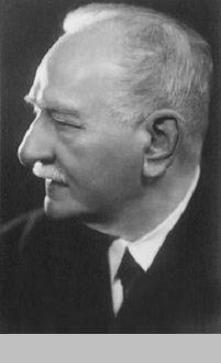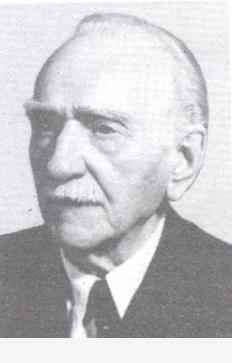


Josef Bohuslav Foerster (30. 12. 1859 Praha – 29. 5. 1951 Vestec u Ml. Boleslavi)
A remarkable Czech composer, pedagogue, writer and music reviewer. Son of Josef Foerster, well-known peronality of Prague musical life (bandmaster at St.Vitus' Cathedral, organist and professor at Conservatory of Prague, among other activities). In 1871-1875 young Josef Bohuslav studied a grammar school in Prague and since 1875 he started higher level of secondary education at "Real Gymnasium" of Prague where he got general scope and affinity for literature and painting. After graduation in 1878 he studied Chemistry at German Technical College (on father's demand) but a year later he finally decided to become a musician and started his study at the Orgnists' School. After finishing the school he became the organist at St.Vojtech (1882-1888) and simultaneously taught singing at the Real Gymnasium. In 1889-1892 he was the choirmaster in another famous Prague church (Panny Marie Snezne). He also was a musical reporter for Narodni listy (National Papers, the most important Czech-written newspaper of that time). He propagated Smetana and fought against verism (musical style based on realism and naturalism) and light operas in the National Theatre. In 1888 he married Berta lautererova, the young talented soprano singer of National Theatre. In 1893 he followed her to Hamburg, Germany where she got an engagement in the Municipal Theatre. Foerster went on with his composition, jouralistic and pedagogical activities. He met Gustav Maler, the Chief COnductor of the Municipal Theatre at the time, and they kept friendly relations ever since. In 1901 Berta changed her engagements and moved to Vienna to sing at the Court Opera. Foerster followed her in 1903 here again went on with all his activities: pedagogical (professor of the New Conservatory), journalistic and composition. He kept active relations with the Czech community in Vienna. In 1918 the Foerster spouses came back to Prague. Josef Bohuslav is a recognized composer all over Europe at that time but his acceptation at home is not explicit. Some of the professional public disputed the national character of his music. On the other hand, a lot of local fans exist who try to propagate his works by all means (composers Otkar Jeremias, Otakar Ostrcil and others). In 1931 he was elected the President of Czech Academy of Science and Arts. In 1945 he was the first musician to get the title of National Artist of the Czechoslovak Republic.
Works:
J.B.Foerster was a very productive composer. Detailed lists of his works can be found at the links below. His compositions were not much innovative and creative in style. Yet he contributed to the treasury of Czech national music by his lyric feelings, the works being deeply intimate and meditative, technically influenced by his liking for organ polyphony which he transferred into his choral works, too. He wrote music of all genres:
Sources:
Wikipedia(more detailed worklist in the Czech version)
portrait on Czechmusic.org
Mala encyklopedie hudby/Little Encyclopedia of Music (dr. Jar. Smolka; &kolektiv, Supraphon 1983)
Kniha o hudbe/Book of Music (V.Holzknecht a kol., Orbis 1964)
Poutnik se vraci / Pilgrim coming back - Josef Bohuslav Foerster - life and work (Antonin Dzbanek & col., Set Out 2006)
Sample:
Concerto for Violin and Orchestra No. 1 in C Minor, op. 88 - 1910 (1. Allegro moderato, Ivan Zenaty - violin, BBC Symphony Orchestra, cond. Jiri Belohlavek, Supraphon 2008)


